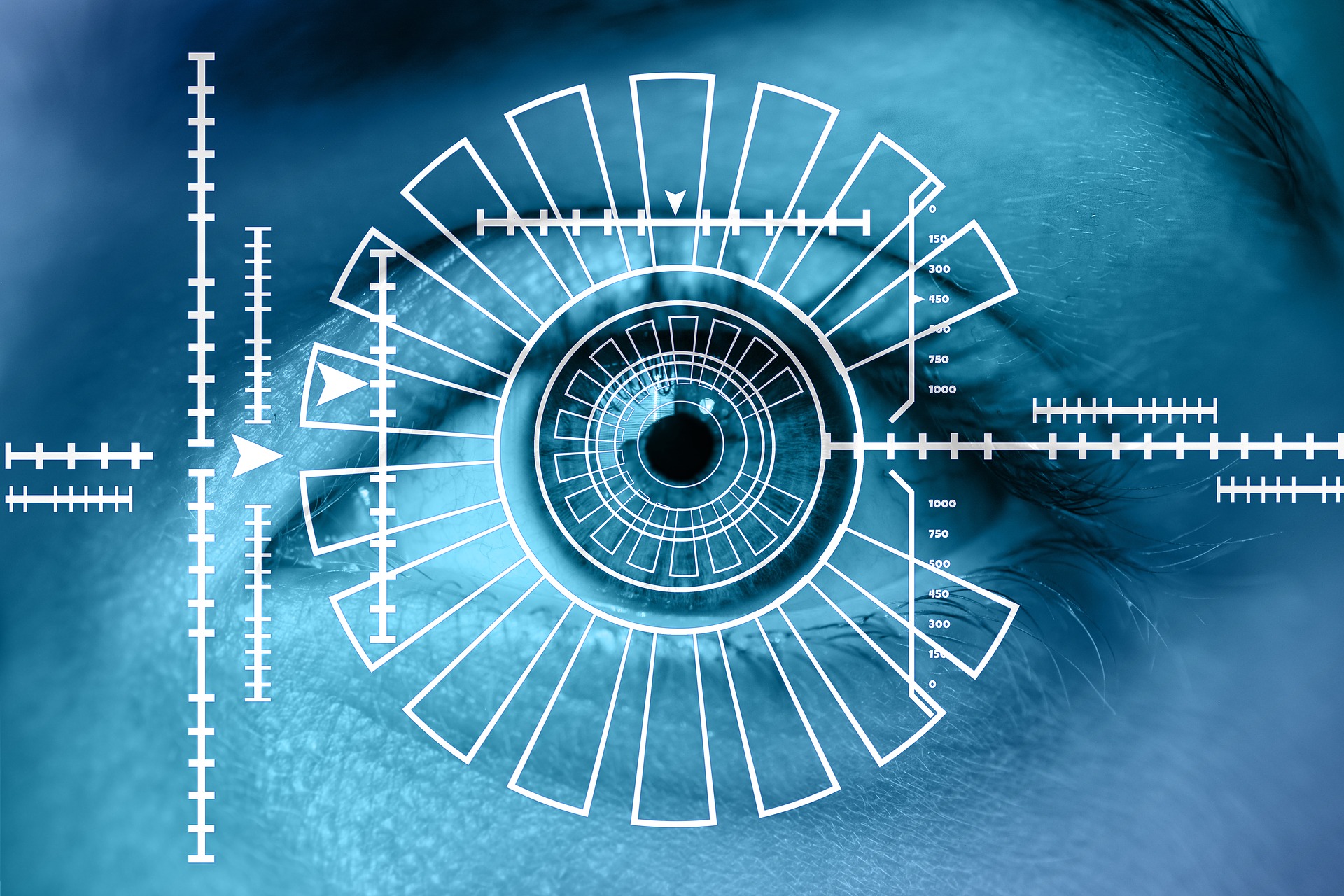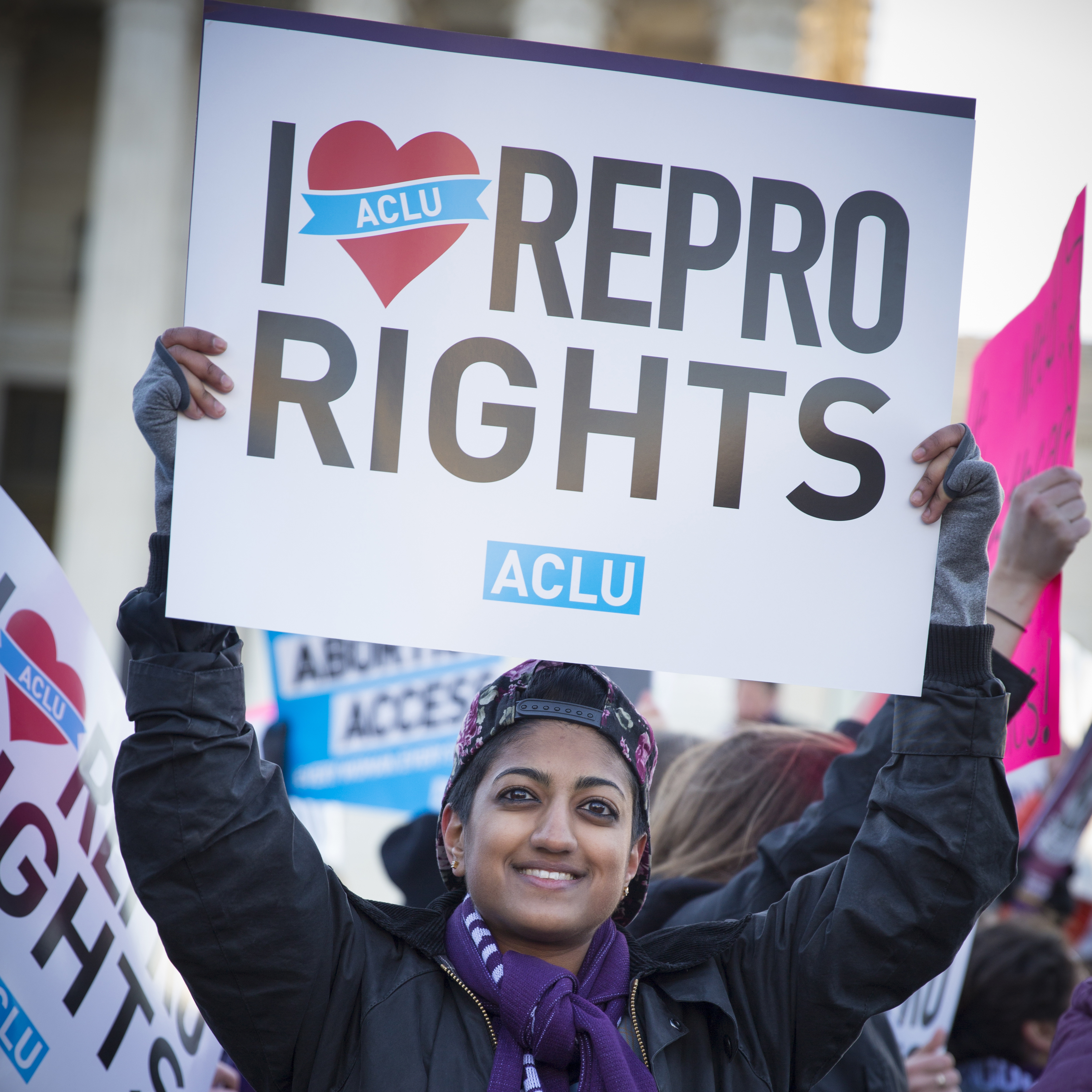By Nicole Ozer, Technology & Civil Liberties Director, ACLU of California. This was originally published by USA Today.
A top Google executive recently sent a shot across the bow of its competitors regarding face surveillance. Kent Walker, the company's general counsel and senior vice president of global affairs, made it clear that Google — unlike Amazon and Microsoft — will not sell a face recognition product until the technology's potential for abuse is addressed.
Face recognition, powered by artificial intelligence, could allow the government to supercharge surveillance by automating identification and tracking. Authorities could use it to track protesters, target vulnerable communities (such as immigrants), and create digital policing in communities of color that are already subject to pervasive police monitoring.
So how are the world's biggest technology companies responding to this serious threat to privacy, safety and civil rights? Google at least appears to be taking the risks seriously with its recent announcement. Microsoft, unfortunately, is just talking the talk. And Amazon is completely running amok.
All three companies need to take responsibility for uses of their technology. Now, a nationwide coalition of civil rights organizations have demanded that they not sellface surveillance to the government.
Last spring, the ACLU exposed how Amazon is aggressively trying to sell its face surveillance product — Rekognition — to government agencies. The company's marketing materials read like a user manual for the type of authoritarian surveillance you can currently see in China.
Amazon encourages governments to use its technology to track "persons of interest" and monitor public spaces, comparing everyone to databases with tens of millions of faces. Amazon even suggested pairing face recognition with police body cameras, a move that would transform devices meant for police accountability into roving mass-surveillance devices.
The dangers couldn't be clearer. In an eye-opening test, Amazon’s Rekognition falsely matched 28 members of Congress against a mugshot database. Tellingly, congressional members of color were disproportionately misidentified, including civil rights leader Rep. John Lewis, D-Ga. And that test wasn’t based on a hypothetical: Law enforcement has already been using Rekognition to match pictures against arrest-photo databases.
Following these revelations, federal lawmakers spoke up about the risks of face surveillance, and civil rights groups, company shareholders, and hundreds of Amazon employees have called on Amazon to stop selling the technology to governments. But instead of heeding these concerns and taking their product off the table for governments, the company is trying to sell Rekognition to Immigration and Customs Enforcement and the FBI.
Amazon's statements and actions provide a stark contrast with Google's approach. While Amazon CEO Jeff Bezos acknowledged his company's products might be put to "bad uses," he said the solution was to wait for society's eventual "immune response" to take care of the problems. This is a shocking abdication of responsibility, not to mention a convenient blindness to the "response" that Rekognition has already engendered.
Google, on the other hand, has charted a distinctly different course with technologies based on artificial intelligence, with CEO Sundar Pichai urging his industry to realize that "it just can't build it and then fix it."
So where is Microsoft in all this? The company has explicitly recognized the dangers of face surveillance in its statements, but its proposed solutions doesn't add up.
In a blog post, Microsoft President Brad Smith correctly identifies the threats the technology poses to privacy, free speech and other human rights, observing that today's technology makes a surveillance state possible.
But then, after outlining those grave threats to democracy, Smith proposes relying on inadequate safeguards that have failed in the past with technologies far less dangerous than face surveillance. He expresses excessive faith in notifying people of face surveillance systems — but what good is that in a world where face recognition is so widespread that nobody can opt out?
History has taught us that given the opportunity, governments will exploit new surveillance technologies, especially to target communities of color, religious minorities and immigrants. With face surveillance, we are at a crossroads. The choices made now will determine whether the next generation will have to fear being tracked by the government for attending a protest or going to their place of worship — or simply living their lives.
That's why so many people have been sounding the alarm. Microsoft has heard it, but seems to be in denial. Amazon needs to get its fingers out of its ears and start really listening. Google has heard it and is on the right track — the rest of the industry should follow its lead.
Date
Friday, January 25, 2019 - 4:00pm
Featured image
Show featured image
Hide banner image
Related issues
Privacy and Surveillance
Show related content
Tweet Text
[node:title]
Type
Show PDF in viewer on page
Style
Standard with sidebar
The Civil Rights and Civil Liberties section of the BBA in collaboration with ACLU Massachusetts, Health Law Advocates and the Muslim Justice League present a CLE addressing representation of clients impacted by a program called Countering Violent Extremism (“CVE”). CVE raises many legal issues for attorneys whose clients it may target. The frame of this CLE will be to address how law enforcement agencies are using national security pretexts to advance this surveillance program, and its insidious impacts for clients’ health care access and online speech.
Background: Countering Violent Extremism (“CVE”) is a federal campaign messaged as helping redirect persons “at risk for”/“vulnerable to” potential “extremism” — an ill-defined and contested concept — using a range of tactics. Since the U.S. National Security Council announced the U.S. CVE campaign, federal agencies including DHS, the FBI, USAOs and others, and many local law enforcement agencies, have begun deploying the campaign first in three pilot cities (Boston, Minneapolis and Los Angeles) and now throughout much of the U.S. Federal outreach and grant allocations demonstrate that CVE is primarily concerned with Muslims, and that activists for Black lives (characterized by the FBI as “Black Identity Extremists”), LGBTQ communities, refugees, environmental activists and others are also likely targets. One prominent CVE tactic is to recruit civil society -- especially health care and education professionals, non-profits serving Somali-American communities, and Muslim religious leaders — to monitor civilians for ostensible risk factors, which are generally so vague as to invite use of implicit bias, or in some cases are proxies for religion or national origin. CVE in the U.S. mimics a British campaign called PREVENT (which, after a permissive period, was formalized such that certain social services providers’ participation is now statutorily mandated) and many other national governments operate or are developing CVE campaigns.
Health Care Impacts of CVE: This panel will be designed for practitioners who may represent individuals who are surveilled, watch-listed, referred for “interventions” and/or questioned by law enforcement as a result of CVE incursions into health services. The panel will also be useful for practitioners who represent health care or other social service providers who may be pressured to provide information about patients or clients to law enforcement or to engage in CVE “interventions.”
Social Media Surveillance: This panel will be targeted to practitioners who may represent individuals who could be prosecuted for offenses related to material support for terrorism (including attempt or conspiracy), citing social media speech as evidence of intent or as an alleged offense.
This program was sponsored in part by the Joan B. DiCola Fund.
Speakers:
- Faiza Patel, Key Note Speaker | Brennan Center for Justice
- Andrew Cohen, Moderator | Health Law Advocates, Inc.
- Robert P. Marlin, Cambridge Health Alliance
- Shannon Al-Wakeel, Muslim Justice League
- Kamau Franklin, Community Movement Builders, Inc.
- Jessica Diane Hedges, Hedges & Tumposky, LLP
- Waheeda Saif, Riverside Trauma Center
- Rachel Levinson-Waldman, Brennan Center for Justice
Learn more about the ACLU's work on CVE
Event Date
Thursday, January 31, 2019 - 12:00pm to
Friday, February 1, 2019 - 4:45pm
Featured image
More information / register
Venue
Boston Bar Association
Address
Boston, MA 02108
United States
Website
Tweet Text
[node:title]
Date
Thursday, January 31, 2019 - 5:00pm
Menu parent dynamic listing
Blog by Carol Rose, executive director of the ACLU of Massachusetts
Today, we reflect on 46 years of legal abortion in the United States thanks to the historic Supreme Court decision, Roe v. Wade. The freedom to define our own path—including whether or not to carry a pregnancy—is a basic right and part of what it means to live a safe and healthy life.
But, on its 46th anniversary, Roe v. Wade is in danger like never before. Across the country, anti-abortion politicians have quietly passed laws that push abortion care out of reach. Some states are trying to ban abortion outright. The White House is hell-bent on interfering with personal health care choices. The Trump administration’s next attorney general has long been a critic of abortion rights, and the elevation of Brett Kavanagh to the Supreme Court puts Roe in grave danger.
As the right to abortion is attacked across the country, Massachusetts has an opportunity to be bold.
Last legislative session, we celebrated many victories that safeguard the right to make the most fundamental decisions about our bodies, our families, and our lives, no matter what happens federally. The ACLU of Massachusetts fought for—and won—a trifecta of victories improving access to essential reproductive health care for all: When the Trump administration announced its executive order to block birth control access, we pushed Massachusetts leaders to quickly pass the ACCESS Act to protect and expand contraceptive access for people throughout the Commonwealth. But we recognize that a right to health care on paper—without a guarantee of confidentiality—may not mean a lot to a young person on their parents’ heath plan. So, we changed the law to protect patient privacy and turn the promise of health access into a reality. And later, when President Trump promised to appoint Supreme Court justices who would overturn Roe v. Wade, we urged Beacon Hill to swiftly repeal an archaic, unconstitutional abortion ban still moldering on the books in Massachusetts—and they did.
Now, we’re building on that momentum and advocating for new, affirmative abortion access protections. The ROE Act would remove every barrier to care and reform our state’s abortion laws to ensure that anyone, regardless of age, income, insurance or legal status, can access safe, legal abortion. If passed, the ROE Act would make Massachusetts the leader in reproductive freedom, and a national model of removing barriers to abortion.
Since it was decided in 1973, Roe v. Wade has ensured that generations of people have had access to abortion—but there’s more work to do. Whatever happens nationally, the ACLU will be there—fighting back in court, advocating for the ROE Act and other state policies that protect and expand abortion care, and organizing on the ground to build a future of freedom where the legal right to abortion guaranteed by Roe v. Wade is unfettered.
Date
Tuesday, January 22, 2019 - 12:00pm
Featured image
Show featured image
Hide banner image
Related issues
Reproductive Freedom
Show related content
Tweet Text
[node:title]
Type
Menu parent dynamic listing
Style
Standard with sidebar
Pages


